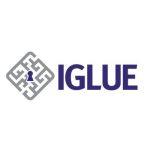IGLUE Project: Implementation of game-based learning using escape rooms

Logroño, La Rioja, Spain. 18 December 2024
Educational escape rooms are a novel type of learning activity that has the potential to improve students’ performance while boosting engagement and motivation. Moreover, escape rooms can help improve soft skills such as teamwork, leadership, and problem-solving, which are germane to learning and future work. However, designing and implementing pedagogically sound educational escape rooms is challenging and currently universities lack the capacity to effectively adopt these innovative activities.
The IGLUE project aims to empower universities to create and conduct pedagogically sound educational escape rooms, to promote the widespread adoption of such innovative teaching practices across Europe, and reap the benefits thereof. The specific objectives of the project are to define a methodology for the pedagogical design of educational escape rooms, to provide teachers with the digital tools and training they need to create these activities, to build, execute and assess various educational escape rooms in several European universities using the developed methodology and tools, and to establish a European network dedicated to the creation, sharing and execution of educational escape rooms.
The project will have an initial pedagogical design phase in which a methodology for designing effective instructional interventions based on educational escape rooms will be defined. On this basis, a virtual platform for creating, conducting, and sharing educational escape rooms will be developed and deployed at each participating institution forming a European network of escape rooms. This network will be decentralized and open to new institutions. Teachers will be trained in the use of the methodology and the platform developed in the project, increasing the capacity and readiness of institutions to manage an effective shift towards effective digital education.
IGLUE’s envisioned impact is to empower institutions to create and conduct educational escape rooms capable of positively impacting students’ learning outcomes, engagement, and motivation. Thereby, the project will enable educational institutions to stimulate an innovative learning and teaching practice, which can help them to provide better learning experiences, increase their educational offerings, attract more students, and improve their reputation.
IGLUE project’s main results will be:
- A methodology and a virtual platform to facilitate teachers the design, build, and execution of educational escape rooms.
- An open and decentralized European network of educational escape rooms.
- 6 teacher training courses: 3 expert-led courses and 3 MOOC courses.
- 125 teachers trained in the use of the methodology and the platform.
- 30 educational escape rooms involving 1500 students.
- 8 multiplier events that extend the project’s impact to a broader audience, including K-12 schools.
The total grant for this project is 250.000 euros.
Coordinator: Universidad Politécnica de Madrid (Spain)
Partners: Univerzitet Metropolitan (Serbia); University of Eastern Finland (Finland); Universidad Internacional de La Rioja (Spain)
Website: https://iglue.dit.upm.es/
Reference: 2024-1-ES01-KA220-HED-000256356
Time span: 2024-2026
Funding type: European public

